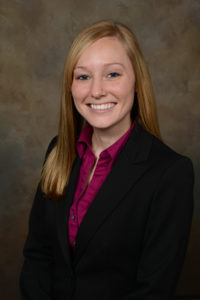IDWeek is upon us and we want to be sure YOU know where to find us! Below is the list of faculty presentations and posters from our Division. Please come visit us at IDWeek – We would LOVE to meet you!
Content courtesy of Sandy Nelson and the entire UNMC ID Division.
Tuesday Oct 3
10:15-10:45 a.m. Van Schooneveld TC. Best Practices for Antimicrobial Stewardship Programs – Syndrome-specific interventions: Combining Interventions to Improve Care
4:10 p.m. Friefeld A. Transplant Infections. *at Vincent T. Andriole Board Review Course
Wednesday October 4
1:30-3:30 p.m. Rupp ME. Controversies in Infection Prevention: Pro/Con
Thursday October 5
12:30-2:00 p.m. Rupp ME, Olson C, Cavalieri RJ, Lyden E, Carling P. How Clean are the Clinics?
Assessment of Environmental Cleanliness in Ambulatory Care. Poster 481
12:30-2:00 p.m. Fitzgerald T, Nailon R, Tyner K, Beach S, Drake M, Lyden E, Rupp ME, Schwedhelm M, Tierney M, Ashraf MS. Infection Control in Long-Term Care Facilities: Frequently Identified Gaps in Infrastructure, Surveillance and Safety. Poster 413
12:30-2:00 p.m. Tyner K, Nailon R, Beach S, Drake M, Fitzgerald T, Lyden E, Rupp ME, Schwedhelm M, Tierney M, Ashraf MS. Environmental Cleaning and Disinfection in Long-Term Care Facilities: Opportunities for Improvement. Poster 485
12:30-2:00 p.m. Chung P, Nailon R, Tyner K, Beach S, Bergman S, Drake M, Fitzgerald T, Lyden E, Rupp ME, Schwedhelm M, Tierney M, Van Schooneveld, T, Ashraf MS. Frequently Identified Gaps in Antimicrobial Stewardship Programs in Critical Access Hospitals. Poster 701
12:30-2:00 p.m. Chung P, Nailon R, Tyner K, Beach S, Bergman S, Drake M, Fitzgerald T, Lyden E, Rupp ME, Schwedhelm M, Tierney M, Van Schooneveld, T, Ashraf MS. Frequently Identified Gaps in Antimicrobial Stewardship Programs in Long-Term Care Facilities. Poster 702
12:30-2:00 p.m. Uriel Sandkovsky, Michelle Schwedhelm, Shonelle Grayer, Emily Adelgren, and Mark E. Rupp. Small Changes Make a Big Difference in the Fit of N95 Respirators. Poster 435
Friday, October 6
12:30-2:00 p.m. Green Hines A, Zwiener J, Stec R, Heybrock B, Hegemann L, Simonsen K. Cost Analysis of an Antimicrobial Stewardship Program (ASP) Protocol for Adherence to the 2014 American Academy of Pediatrics (AAP) Palivizumab Prophylaxis Recommendations in a Freestanding Children’s Hospital. Poster 1608
12:30-2:00 p.m. Bares SH and Sandkovsky U. Development and Assessment of an HIV-focused E-learning Flipped Classroom Curriculum in an Infectious Diseases Fellowship Program. Poster 1446
12:30-2:00 p.m. Tyner K, Nailon R, Beach S, Drake M, Fitzgerald T, Lyden E, Rupp ME, Schwedhelm M, Tierney M, Ashraf MS. Frequently Identified Infection Control Gaps Related to Hand Hygiene in Long-Term Care Facilities. Poster 1322
Saturday October 7
12:30-2:00 p.m. Rupp ME, Tandon HK, Danielson PW, Cavalieri RJ, Sayles H. Peripheral Intravenous Catheters – “They Don’t Get No Respect”. Poster 2160
12:30 -2:00 p.m. Uriel Sandkovsky, Fang Qiu, Andre C. Kalil, Ada Florescu, Natasha Wilson, Christa Manning, and Diana F. Florescu. Risk factors for development of cytomegalovirus resistance in solid organ transplantation: a retrospective nested case control study. Poster 2448
12:30 -2:00 p.m. Uriel Sandkovsky, Fang Qiu, Andre C. Kalil, Adriana Weinfeld-Massaia, Joong Kwon, Cynthia Schmidt, and Diana F. Florescu. Epidemiology of Bloodstream Infections in Kidney Transplant Recipients: A Systematic Review and Meta-analysis. Poster 2375
12:30 -2:00 p.m. Signorelli J, Liewer S, Zimmer A, Freifeld AG Incidence of Febrile Neutropenia in Autologous Hematopoietic Stem Cell Transplant (HSCT) Recipients on Levofloxacin Prophylaxis at a Single Center Midwest Cancer Center Poster 2390
12:30 -2:00 p.m. Richard Hankins, Denisa Majorant, , R Jennifer Cavalieri, , Elizabeth Lyden, Paul D. Fey, Mark E. Rupp, and Kelly Cawcutt, Microbial Colonization of Intravenous Luer Lock Connector During Active Infusions Among Hospitalized Patients Poster 2155
Find us on Twitter @UNMC_ID; #UNMCID
IxuV Vd Pn Qj P YINB J



Recent Comments